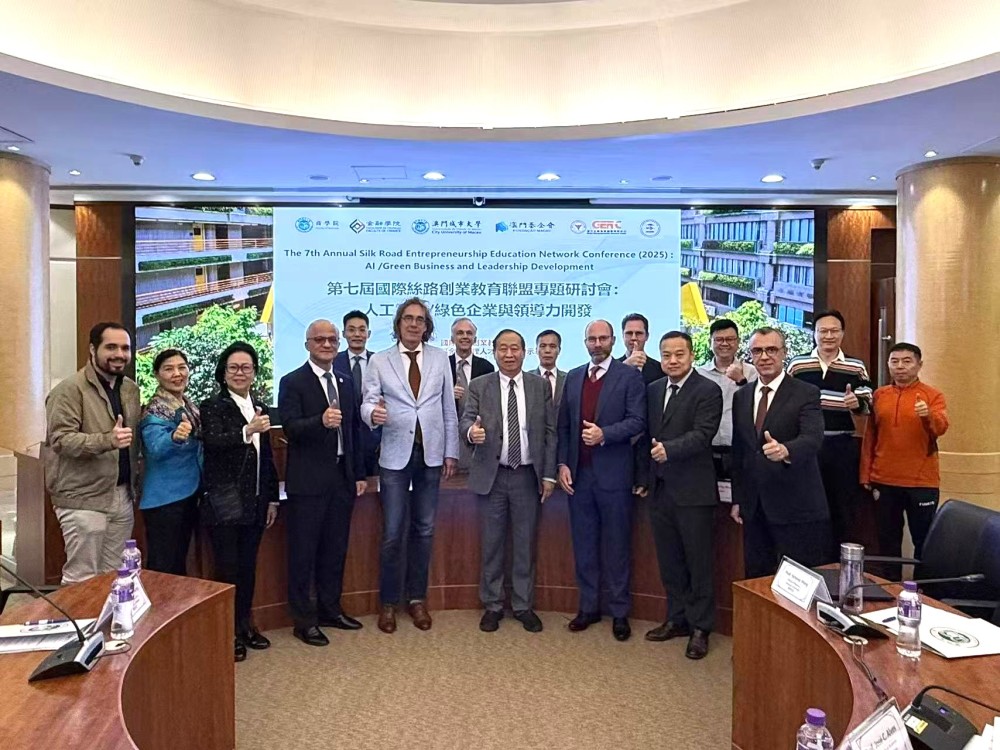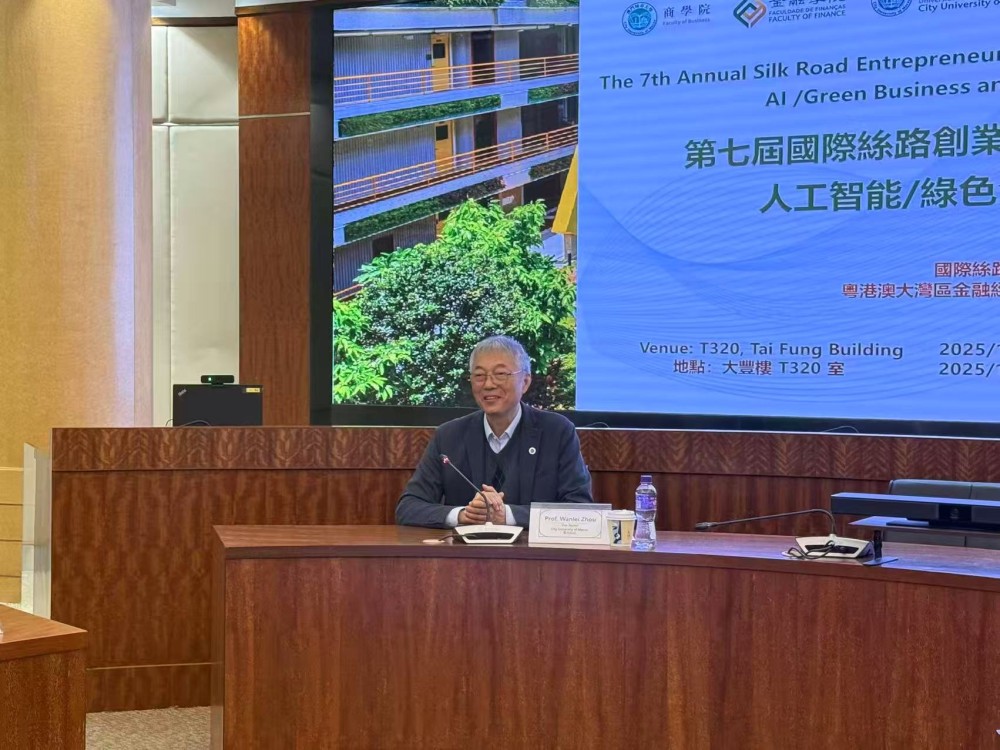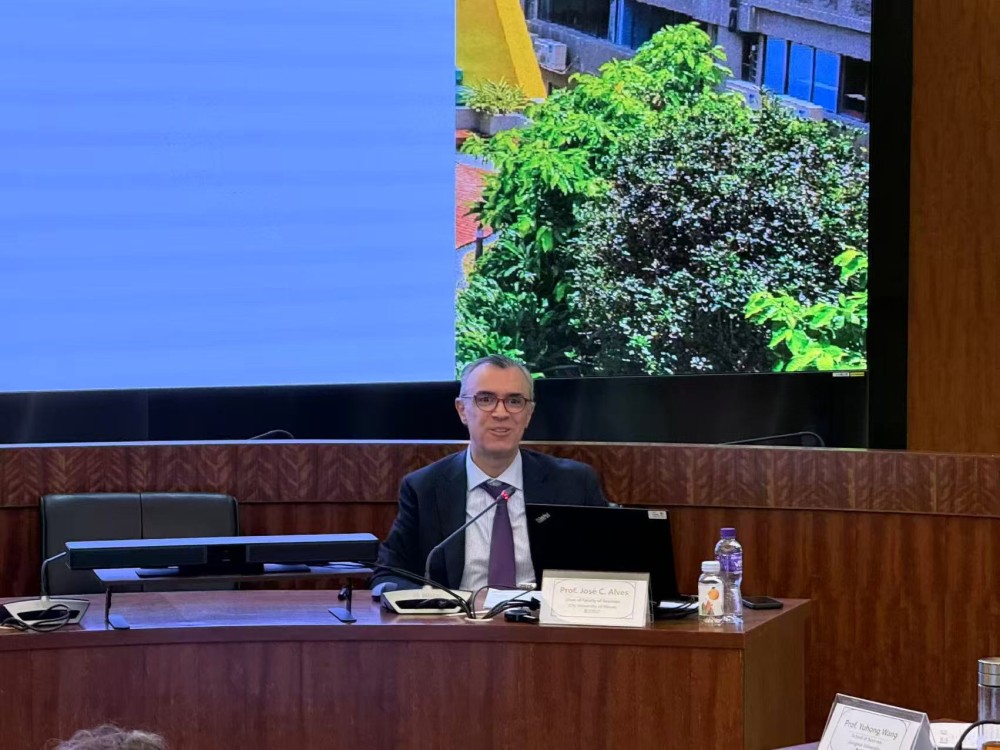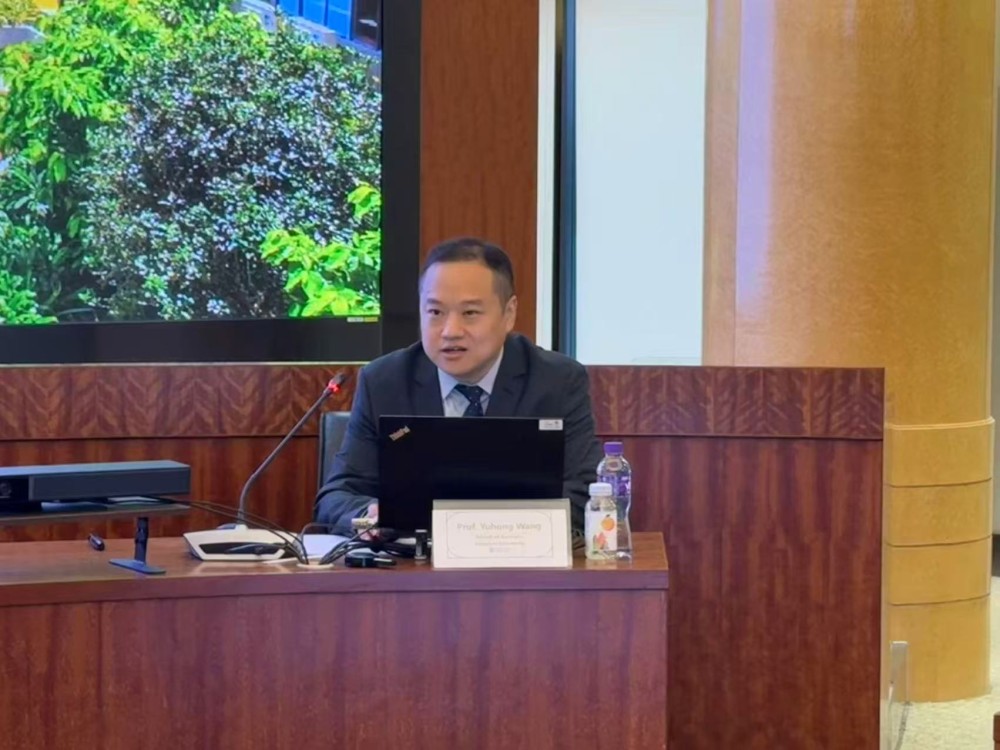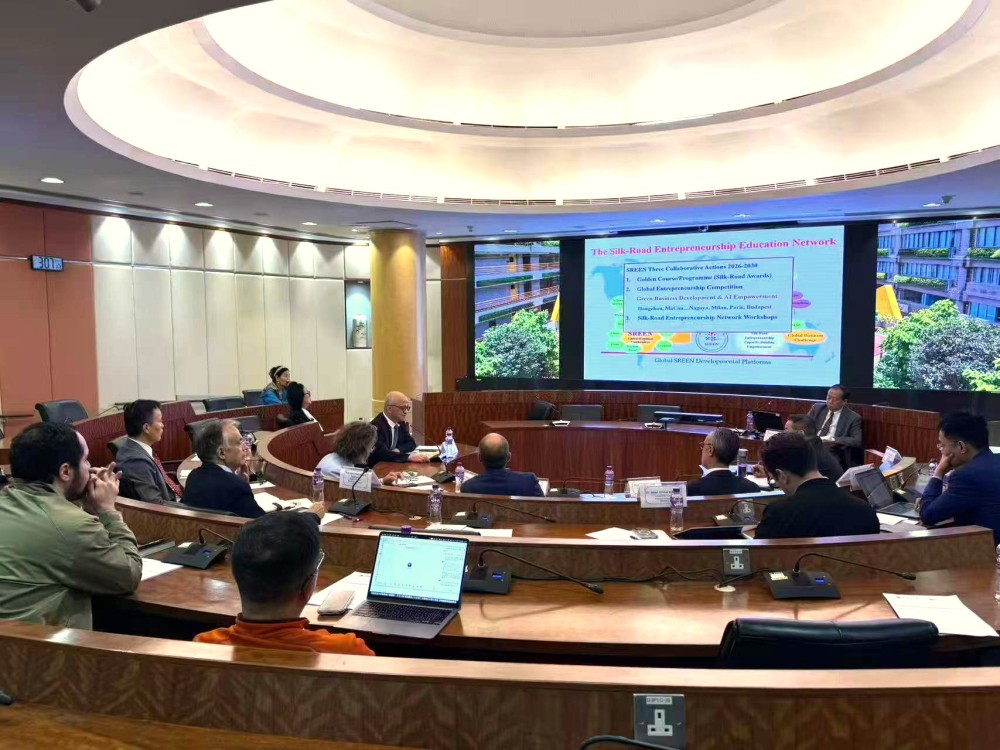The 7th Annual Silk Road Entrepreneurship Education Network Conference, jointly organized by the International Silk-Road Entrepreneurship Education Network, the Global Entrepreneurship Research Center of Zhejiang University, and the Faculty of Business and Faculty of Finance of City University of Macau, and co-organized by the International Silk-Road Entrepreneurship Education Network Guangdong-Hong Kong-Macao Greater Bay Area Financial Manager Talent Development Program Demonstration Base, was recently held over two days at the Taipa Campus, City University of Macau. The conference delved deeply into the theme "AI, Green Business, and Leadership Development". Attendees at the opening ceremony and the first day's entrepreneurship education development conference included Professor Wang Zhongming, the International Silk-Road Entrepreneurship Education Network Chairman, Senior Liberal Arts Professor of Zhejiang University; Vice President Gábor Á. Zemplén of Eötvös Loránd University (Hungary); Professor Andreas Rauch from Audencia Business School (France); Professor Wang Yuhong from the School of Business at Jiangnan University; Researcher Hu Honghao from the Global Entrepreneurship Research Center of Zhejiang University; Dean José C. Alves, from Faculty of Business, City University of Macau ; and Dean Adrian Cheung and Associate Dean Eva Khong, from Faculty of Finance.
Dean Adrian Cheung warmly welcomed the experts and scholars, expressing his hope that they would explore the relationships between AI, green business, and leadership from various perspectives, jointly promote development in related fields, and provide inspiration for the attending scholars.
In the address, Professor Wang Zhongming stated that the International Silk-Road Entrepreneurship Education Network has now established a global network of cooperative demonstration bases, working together to promote cooperation among universities in Belt and Road countries and regions in areas such as inter-university exchanges, talent cultivation, and scientific research, creating a transnational cooperation and interaction platform for faculties. The Alliance will launch three new collaborative initiatives between 2026 and 2030, aiming to promote high-quality development in entrepreneurship education and business education across Asia and Europe through courses, competitions, and workshops, while also revisiting the historical Silk Road culture and the economic pulse of the "Belt and Road" initiative. To support this international cooperation plan, the Alliance, under the thematic concept of "Responsibility and Sustainability," aims to reshape innovation-driven models and enhance the fertile ground for entrepreneurship and creation in the AI era. Professor Wang Zhongming expressed his hope that the seminar's discussions on AI, green business, and leadership development would strengthen the cultivation of new talents with international leadership and innovative spirit, contributing continuously to globalized education.
Professor Wang Zhongming then chaired the meeting, where participants jointly discussed cooperation in entrepreneurship education and capacity building.
At the Green Business and AI Leadership conference held the following day, CityU Macau Vice Rector Zhou Wanlei delivered an opening speech, stating that sustainable development has become central to academic and corporate responsibility. He emphasized that green business is not just a commercial trend but also a research mission and ethical responsibility. This interdisciplinary exchange meeting would jointly explore how AI can drive sustainable development and innovation, and how to redefine leadership in a complex and changing world. Vice Rector Zhou Wanlei called on the scholars to shape the future together with rigorous academic attitudes and a shared sense of mission.
During the keynote presentations, Professor Gábor Á. Zemplén from Eötvös Loránd University presented his innovative layout and specific achievements in the two key areas of "Sustainable Development" and "Artificial Intelligence," demonstrating the leadership and forward-looking vision of his university as a top research institution in Central Europe. Professor Andreas Rauch from Audencia Business School explored in-depth how to promote the development of entrepreneurship research and practice through scientific methods and emerging technologies. Professor José C. Alves proposed a forward-looking leadership education concept termed "Resilient AI Green Leadership," defining it as an "ideal type" aimed at providing a reference standard for a new type of leadership education within the rapidly evolving entrepreneurial ecosystem. Associate Professor Meng Tian from the School of Economics at Shanghai University introduced the development history and research outcomes of the Shanghai Soft Science Research Base – Shanghai FinTech Research Center. Using practical case studies, he analyzed the innovative application of FinTech in supply chain finance and SME financing, demonstrating how FinTech drives industrial upgrading and real economic development. Professor Wang Yuhong from the School of Business at Jiangnan University elaborated on her groundbreaking research, proposing an AIGC (AI-Generated Content) detection model capable of adapting detection standards according to the characteristics of different disciplines, effectively addressing the issue of low accuracy in traditional detection tools when applied across disciplines.
The roundtable discussion was chaired by Professor Wang Zhongming. Associate Professor Eva Khong pointed out that the Macau SAR Government is actively promoting green and sustainable development, cultivating "Green Citizens" through the education system, vigorously supporting the development of green industries, and gradually building a "Green Culture." City University of Macau is also incorporating green concepts into its curriculum and academic research, actively promoting their integration into the industry-academia-research system. Researcher Jonas Valkonen from the Global Entrepreneurship Research Center of Zhejiang University discussed the systemic impact of AI and the challenges for startup companies, noting that AI can reshape entire business models, solution design, and cross-link coordination, significantly enhancing speed and operational scale. Professor Markus Leibrecht from Faculty of Finance, City University of Macau emphasized that the green transition is not merely a technological upgrade but also a cultural and organizational change. Leaders need systems thinking, change management skills, credibility, and the ability to cope with the disruptive impacts of AI. Dr. Hu Honghao from the Global Entrepreneurship Research Center of Zhejiang University, using Chinese enterprises as examples, proposed three models of green transformation: technological breakthrough, consumer participation, and full-chain solutions. He emphasized that entrepreneurs need long-term vision and psychological resilience to achieve environmental and social value while pursuing profitability.
In the concluding session, Professor Wang Zhongming and Professor Adrian Cheung delivered summary remarks. They highlighted that AI is a key driving force for achieving green business transformation and improving operational efficiency, requiring the application of high-quality data and systematic integrative thinking. They emphasized the need for more empirical research and cross-border collaboration in the future to genuinely promote the sustainable development of both enterprises and the environment.
Other guests attending the conference included Professors José Paulo Afonso Esperança and Xie Dejun, from Faculty of Business, and Sou Cheng Wai, Lecturer from Faculty of Finance, City University of Macau.



